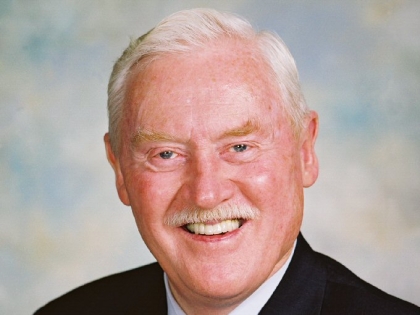
Johnson/Senate Pass Budget Reform Legislation
Owen H. Johnson
January 23, 2007
State Capitol, Albany, New York, January 24, 2007 -- State Senator Owen H. Johnson (4th Senate District, Babylon), Chairman of the Finance Committee, joined with other members of the New York State Senate this week in passing budget reform legislation that increases accountability, openness and transparency in the State budget process and helps to ensure the passage of on-time budgets. The bill (S.1322) reflects an agreement among the Senate, Governor and Assembly.
"The Senate has always been a leader in budget reform and it has been our priority for decades," said Senator Owen H. Johnson. "This bill would take budget openness and transparency to a new level, and I look forward to enacting more of the Senate’s budget reform plan to ensure even greater accountability and timeliness."
Senator Johnson explained that last month, the Senate proposed budget reforms that go beyond the agreed-upon bill. The Senate budget reform proposal (S.2) would line out in the budget every dollar to be spent by the Governor, Legislature, Judiciary and all State agencies, as well as appropriated spending for public authorities.
The budget reform bill (S.1322) passed by the Senate includes the following provisions:
- The Executive must provide greater itemization of spending in the budget, including funds for TANF, Medicaid and the EPF;
- Requires that every dollar added to the budget by the Legislature be clearly lined out or agreed to by the Executive and Legislature, and publicly voted on by both houses before it is appropriated;
- Requires joint budget conference committees within 10 days of submission of the Executive Budget;
- The legislature will be required to explain fiscal impacts of changes it makes to the governor's budget bills;
- Plain language impact statements will be prepared on a range of program areas, including impact on local governments;
- Accelerates discussions of revenue forecasts and spending projections to November 5th and moves up the consensus revenue forecasting conference to February;
- The Comptroller would set a revenue estimate if the Legislature fails to reach agreement by March 1; and
- There will be a new "rainy day" fund, setting aside three percent of the General Fund in reserve, which will be added on top of the current two percent "rainy day" fund for a total of five percent. The new fund can be used in the event of economic downturn or disaster.
The bill passed the Senate January 22nd and was sent to the Assembly.